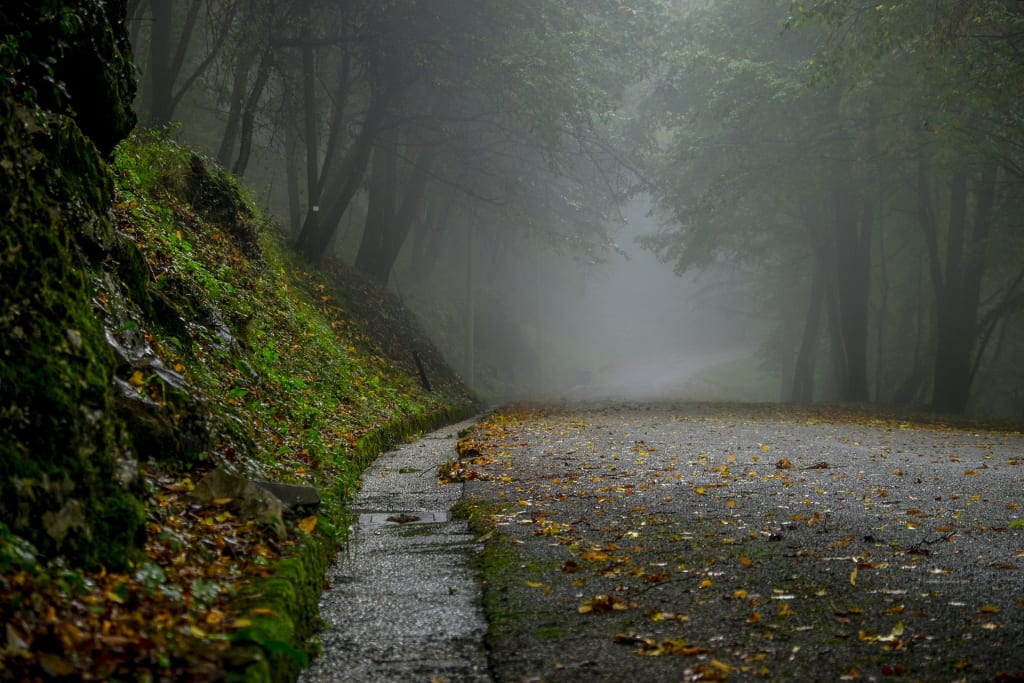
No, you don't. But now and then, I wonder what my life would be like in a different world, where progress hasn't been declared an enemy of the people and hidden away out of sight and — for the most part — out of mind.
A world where I could make a difference.
I'm a terrible angler. Everyone knows this, including me and my father. I dislike water, get seasick easily, and am impatient. Unless the water was unusually calm that day, my market stall always has the thinnest offerings. Nonetheless, I am a fisherman by trade and will remain so until the day I die. That's how it is on the islands, where you are nothing more than your birthright.
Even the royals are powerless to intervene.
A single-family has ruled the people of our isolated, water-locked nation for as long as we can remember. To keep the bloodline pure, a brother marries a sister, and their offspring do the same. There is and has always been only one royal family; no one ever takes power. Nothing ever seems to change. Nature's randomness is their only threat. It is not uncommon for a brother and sister to produce only male or female heirs, which is a problem. A famous King and Queen from two centuries ago had eight sons. Their sons were then tasked with fathering a pair of siblings, a new King and Queen capable of continuing the family line.
Without a sister, this was a difficult task.
It was a worrying time for our people, but with the help of aunts and nieces, the family's reign was maintained. Of course, backup sons, daughters, and cousins are always on standby to take over the throne if the current monarchs die or prove unfit. After all, it's all the same blood.
Although it may appear strange, the system works. We live in a prosperous country. A stable country. A sense of stability stems from the realization that we all have a role to play and have jobs to do. If we could change that and inspire progress, That foundation would be ripped from beneath our feet, and we would be destroyed.
End up like the unstable nations on the mainland ruled by an ever-changing roster of royals and military leaders that is, according to the royals.
So, because I was born to a fisherman, I was destined to be a fisherman. to fill his shoes when he stopped working To keep the wheel turning without ever speeding up. whereas I am not, my brother, as an only child, could never succeed me.
The older child pursues the father's profession, while the younger pursues the mother's. There are no exceptions or trades. If one of your children dies, you have another to replace them. You must have two children as replacements, but never more than that. One child per parent. Unfortunately, my family had three children for a short time.
My mother became pregnant by chance.
They prayed and prayed for the baby to be needed somewhere else. Sometimes a mother or father dies, and their children die before they can carry on the family profession and keep the economy stable. Sometimes a man or woman will not marry and will leave no heir. While most people are required by law to marry and bear children, as the Gods would have it, there isn't always a man for every woman.
As a result, women who are expecting a third child can offer the child as a replacement for whatever role is vacant. When my mother gave birth, however, there was a surplus of third children and an island of good health. My late sister drowned before she was a day old. My father was killed by grief, and since then I've taken his place in the world, replacing him in everything he was. Nobody on the island is unique; we all walk the same path as the one before us, and we will all be followed by a copy of ourselves.
People from other islands find this practice extremely unusual. Not least because women can be warriors while men can be caregivers for children. Men and women have very different roles to play in mainland customs. Anyone can and will be anything on the islands, as long as their mother or father was that before them. They also find it strange that our royals marry people of their blood.
They appear repulsed by the idea. It makes sense to most people on the island, especially those who are content with life as it is. And the majority are content. People have jobs, they have money, and they have a sense of purpose. We remain safe, and stable, and do not go hungry. Visitors say we live on a razor's edge, that anything could happen at any time.
What if one man defies his superiors if one ruler sees a new path?
They're correct, of course, which is why they're not allowed to visit frequently and no one is allowed to break rank. Visitors are not only uncommon but they are never permitted to stay. We do not take visitors to the island. To be able to live here, you must be born here.
New additions would necessitate new employment, new lands, and new wives or husbands. That would imply a shift, but I had to move on. I had no choice.
While others celebrated their ruling class's lives and mocked foreigners for their unusual and seemingly reckless economic and social practices, I yearned to be a part of their world. I despised what I was doing, but I was trapped with no way out. To come close to that, I'd need a wife, a child, and then old age. But none of this was on the cards.
As I bobbed across the warm waters, my head spinning, my stomach churning, and a pool of vomit slowly floating away from my little one-man wooden vessel, the only thing on the horizon was the sight of other fishing boats. Although I despised my little boat, it was sometimes my last resort — I could just sail away.
However, the penalty for failing to perform your duties was more severe than you might think. All of my remaining family would be slaughtered, and the gaps left behind would be filled by the servers, a group of people whose job it was to fill in for those who couldn't work, whether they were sick, jailed, injured, or dead, until a new draft of newborns could be trained and take our places. You couldn't avoid your service to the island unless you wanted to pay a high price. Faking your death or becoming 'lost at sea' was no guarantee of mercy from the royals, and our current rulers, as benevolent as they claimed to be, were more than willing to hang a family on unprovable charges.
Tormenting citizens was the only thing they ever got to do that was interesting.
I was doomed to a life I despised in a world that was not meant for me, but as I floated along, trying to keep the contents of my stomach very much within my stomach, I had an epiphany. I felt like I was making progress for the first time in my life.
My childhood ambition was to master some form of magic. The majority of those blessed, or cursed as islanders would say, were born with their gifts, but on rare occasions, some discovered it later in life. Magic was regarded as dangerous on the islands. A change agent posing a challenge to the ruling class. A danger to our precarious existence. An enemy who must be defeated.
Those with magic, on the other hand, were not killed in the same way that unwanted children were. Our rulers were far too God-fearing for such a thing. They couldn't, however, stay here. Magic wielders were shipped to mainland capital cities, where they were worshiped rather than shunned. It was either that or become an unwanted royal on the island.
Too many royals meant that the monarchy needed more wealth, which meant a shift in wealth distribution across the entire island, which meant change. You couldn't, however, kill a royal. Their blood may be needed. To save money, those on the family's periphery were also sent overseas, though they were not as warmly welcomed as the magic wielders. Despite this, I was not born with royal or magical blood.
Magic was extremely rare, and those who possessed it possessed very obvious gifts.
You'd find element-wielders, who could summon flames from the air or ice from stone, or see-ers, who were granted visions of the future or distant lands.
Both types of magic were simple to test and identify and appeared to be impossible to imitate. Or did they? Of course, I couldn't feign a jet of fire spitting from my fingertips, but as my thoughts wandered over the horizon, letting more and more fish slip through my net, I wondered if I could devise a plot clever enough to appear to have fulfilled a prophecy.
It seemed simple enough to me. It was so simple that I spent days chastising myself for not thinking of it sooner. I had discovered methods of distracting my mind as a result of being stranded at sea for most of the day, with a desire to focus on anything other than the choppy waves. Unlike many of my relatives, I had learned to read on my own. When you couldn't stand for fear of collapsing from dizziness and nausea, staying clamped in the corner of your boat with a book was the most appealing option.
Reading proved to be a valuable ally in the world of scheming. I had access to information that few others were aware existed. Our library was small but full of history, with plenty of scrolls and even the occasional book on two topics that I was particularly interested in magical occurrences and poisons.
The greatest prophecies, the ones that never failed to expel the island's see-ers, were always tragic in their outcome. Death was a recurring theme, but if I claim to have foreseen my neighbor's death and they turn up with a knife in their neck, suspicion might just triumph over the royal's fear of magic. I needed to be more subtle, and I'd discovered that poison was the most subtle killer of all. I'd read about the most heinous and lethal poisons. Poisons that can kill with a single drop Poisons that can kill without making a sound or showing any symptoms. But I had to face a very serious question:
Was I a murderer?
Unfortunately, the answer was an overwhelming cacophony of no echoing inside my head. I desperately wanted to leave my life behind, but not at the expense of another. However, the poison did not always have to be lethal. Crops and food stores were just as vulnerable as livestock. But everything had to be dramatic. It had to catch people's attention if I was to enchant the public, inspire hearsay, and persuade the royals that I was a threat to their world. Fortunately, a few scrolls on the art of acting had been left behind by a very learned old theater performer.
So, what did the scrolls say I needed to do well? A throng. I made an informed decision regarding my location. On a hot summer day, a bustling market by the water's edge. People were out in large numbers. Then I needed to make it plausible. In the books and scrolls I'd read, honest accounts described how see-ers gripped by powerful foresight would collapse into a heap, muttering inaudible words and contorting their bodies. Finally, I had no choice but to act.
I had to keep performing to keep my audience interested. The true see-ers would awake in a daze and utter words of prophecy, before becoming unnervingly energized and with no recollection of the previous moments, instead gradually recalling their vision over the next few minutes. And so, after a slew of practices at home in the dead of night, I began.
A plague was coming, a monstrous plague, I believe my exact words were before I snapped back to life. It’s hard to know if I did a good job, but those crowding around me seemed alarmed and fearful, which I took to mean that I had followed the old performer’s words well enough.
The difficult part was acting; making the prophecy come true was far easier. It was difficult, not least because of the smell, to mash up the glands of poisonous fish and mix them with weeds for added potency, but it was far less taxing than being a live performer. In the dead of night, I concocted a lethal liquid to spread across the lower farmlands. The crops wilted and rotted by morning, the poison soaking into their roots and decimating everything it touched. I was taken aback by how effective it was.
I was taken not long after sunrise, strung by the wrists and spread across a wooden wrack, and presented to the royals. And with that, I accomplished something that no one on the island had done in centuries. I made progress. I worked my way out of a hole I couldn't stand being in, and I was free.
About the Creator
Sami Tech
I worked in writing and photography since 2017, After attaining a BA in journalism and Mass Communications at the University of Michigan. Tague is journalism career has led to positions at. the City Michigan journal and several weeklies.






Comments
There are no comments for this story
Be the first to respond and start the conversation.